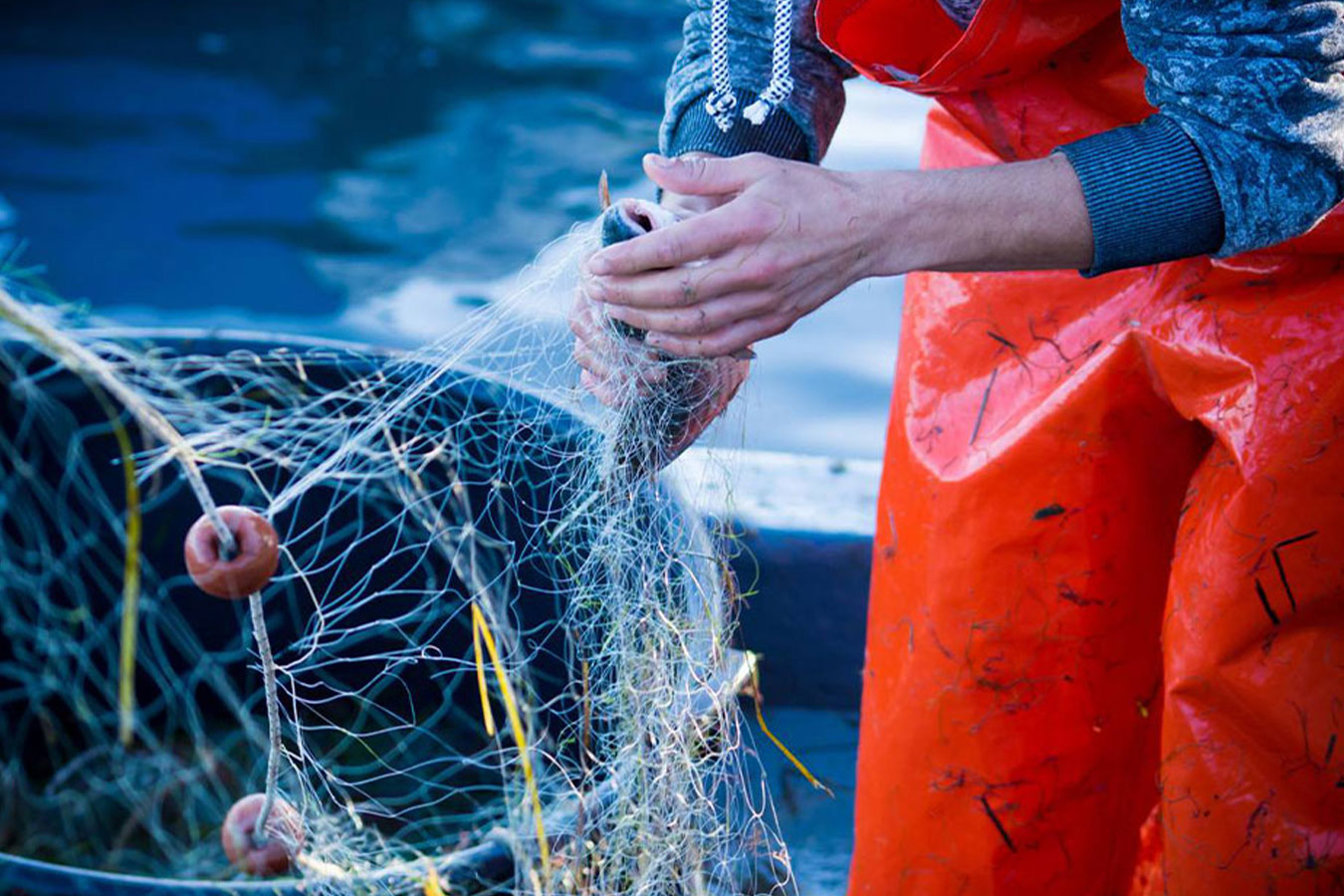«Although tuna enjoys good health, its management is cause for concern»

Laura Rodríguez
Director of MSC in España and Portugal
Tuna enjoys good health. This is the conclusion of the Marine Stewardship Council (MSC) Spain, a 25 year old NGO whose aims are to do away with overfishing and foster a sustainable fishing model worldwide. They’re responsible for the blue label you see on several products. Nevertheless, their Spain and Portugal chairwoman, Laura Rodríguez, claims the challenges faced by these tuna fish are others such as management and knowing how their being fished affects other species.
What’s the situation of this species in the Cantabrian Sea?
Albacore Tuna is fished chiefly in the north where its situation is very good. MSC certified this in 2015 and as far as we’re aware nothing’s changed. Not only do we measure the state of the fish population but also the impact of fishing gear on the ecosystem and management. It’s this latter, which is the main problem of this species.
Why?
Because we’re talking about getting around 100 countries to reach an agreement. The EU has a representative who has to get on with those of India, African states, etc., and each one has different interests so negotiations are sometimes highly complicated. An important advance has been achieved in the last year. Essential decisions have been taken at ICCAT regarding the bluefin tuna caught in the southern Atlantic and the Straits of Gibraltar, which was in a critical condition 15 years ago, but thanks to good management has recovered. In addition, the necessary steps have been taken so fishing catches are always based on scientific criteria. Whilst advances have been made there’s still a lot of work to be done.
Is there concern for tuna populations in the rest of the world?
No, because they’re in a generally good condition, although there are some populations suffering from overfishing like: yellowfin tuna, some bluefin tuna and bigeye tuna. The biggest challenge is management as well as knowing the impact of fishing tuna in relation to other species, since fishing tuna has an impact on other vulnerable species such as sharks, manta ray, etc.
Tuna catches have been a major factor in the decline of other species, such as sharks and manta rays
So, does catching tuna endanger any species?
Many shark species have diminished, although not solely due to tuna catches (which is nevertheless an important factor).
However, there is legislation regulating this
Yes, the EU has a fishing policy where sustainability is established as a fishing parameter. However, everything has to fit and we’re talking about highly migratory species which aren’t in the same area. I mean, we can find them in waters near Spain just as easily as they might be tuna which travel thousands of kilometres; hence, we’re talking about international management not national.
MSC label
How can you achieve the MSC label?
Our programme is voluntary; anyone who wants to can become certified, ranging from a guild to an entire fleet. Once several vessels decide to become certified they hire an auditing firm which analyses our 25 indicators. The entire process is both public and rigorous. Different reports are published on our web, and are open to comments from groups of interest, thus not only making the process more rigorous but also more complex. It lasts 18 months on average and sometimes more than 2 years.
Does it only affect the fisheries and vessels or the seller as well?
Any company which buys and sells that tuna must undergo a custody audit to ensure the certified tuna is not mixed with fish without our label. Therefore, when you see an MSC tin of tuna you know the intermediaries have undergone the foregoing process and it’s from a vessel which has passed such a complete evaluation.
Basque fishing guilds, pioneers
Are spanish fishermen aware of this?
Yes, when we started in Spain 12 years ago the programme wasn’t very well known. At that time, the fishing sector was somewhat on the defence as regards sustainability. The Basque guilds were pioneering in the certification of Albacore Tuna in 2016 and also with the anchovy. Echebastar obtained the first certification in the Indian Ocean, and it’s been unstoppable since then. Now there are 244,000 tonnes of tuna from certified Spanish fishing fleet vessels, furthermore, Spain leads the commitment to tuna with MSC certification in Europe, not to mention octopus, cod, etc.; however, the most determined commitment we’re seeing is to tuna.
Given we’re talking about a product whose canned version is greatly consumed, is the canning industry also committed?
Generally speaking, the canning industry has been committed to MSC from the beginning, and is one of the categories where there are more products, although chiefly albacore tuna which has the most added value. The largest deficit; however, is with tuna because it’s considered very low priced. This has to change because behind each tin there is a highly complex technology and processing. It’s a high quality product being sold as if it had no value, and it’s the basic offer product, hence, it’s more difficult to incorporate the MSC label, because of this competition of reducing prices. We’ve been trying to change this for years; it’s not like this in other countries where MSC tuna is present in all the supermarkets and major brands. It’s something you see normally, yet here in Spain, where we’re one of the largest consumers worldwide, MSC tuna presence is scarce.
And consumers?
Well, their habits are changing, since according to the GlobeScan market study of March 2022 on a 1000 consumer sample in Spain, 93% were concerned about the oceans, with the major concerns being marine pollution, overfishing and climate change. A part of the population is far more willing to seek information about sustainability. We can see there’s a group of consumers reducing the fish group balanced out by the group of consumers increasing the same. There are different factors here. Fish consumption is associated with health matters. People who are reducing the same do it for environmental reasons, they feel the best thing they can do for the oceans is to reduce fish consumption. At MSC we wish to inform responsible fish consumption is possible so you don’t need to give it up.



